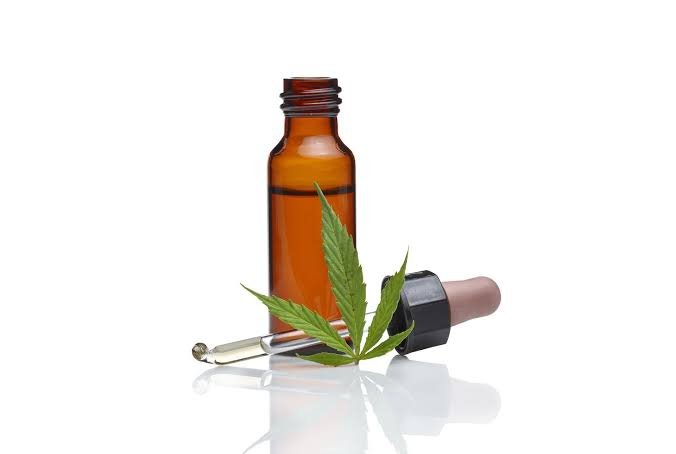Is CBD Oil for Lupus Safe or Effective?
Introduction
CBD oil, derived from marijuana, has gained popularity for its potential therapeutic effects, particularly in managing pain and inflammation. However, its efficacy and safety in treating lupus, a chronic autoimmune disease, remain a subject of debate.
In this blog post, we will walk you through the role of CBD oil in lupus treatment, examining its potential benefits and risks.
What is CBD Oil?
CBD oil, short for cannabidiol oil, is a natural extract derived from the cannabis plant. Unlike its counterpart THC (tetrahydrocannabinol), CBD does not produce psychoactive effects or the sensation of being "high." Instead, CBD interacts with the body's endocannabinoid system, which regulates various physiological processes, including pain perception, inflammation, mood, and appetite.
CBD oil is typically obtained from hemp, a variety of the cannabis plant with low THC content. It is extracted from hemp plants using various methods, such as CO2 extraction or solvent extraction. The resulting oil contains high concentrations of CBD, along with other beneficial compounds like terpenes, flavonoids, and other cannabinoids.
CBD oil is available in various forms, including tinctures, capsules, edibles, topical creams, and vape liquids. It is commonly used for its potential therapeutic effects in managing a range of health conditions, including chronic pain, inflammation, anxiety, insomnia, epilepsy, and more.
However, it's important to note that while CBD oil shows promise as a natural remedy, its efficacy and safety may vary depending on individual factors and the quality of the product.
Potential Benefits of CBD Oil for Lupus
While research specifically focused on CBD oil's effects on lupus is limited, preliminary findings suggest several potential benefits:
Pain Relief: Lupus often leads to debilitating pain, and CBD's analgesic properties may offer relief. Studies on CBD's effectiveness in managing chronic pain conditions support its potential utility in alleviating lupus-related discomfort.
Anti-inflammatory Effects: Inflammation is a hallmark of lupus, contributing to tissue damage and symptom exacerbation. CBD has shown promising anti-inflammatory properties in preclinical studies, which could help mitigate inflammation associated with lupus.
Immunomodulatory Effects: Dysregulated immune responses characterize lupus, leading to tissue damage and systemic complications. CBD's ability to modulate immune function may help restore immune balance, potentially attenuating lupus-related inflammation and autoimmunity.
Neuropathic Pain Management: Lupus-related neuropathy, characterized by nerve damage and neuropathic pain, poses significant challenges in management. Studies on CBD's efficacy in alleviating neuropathic pain from other conditions suggest its potential applicability in managing lupus-associated neuropathy.
Potential Synergies with Conventional Therapies: CBD's complementary mechanism of action with existing lupus treatments may enhance therapeutic outcomes while minimizing adverse effects. Integrating CBD oil into multimodal treatment approaches warrants exploration to optimize lupus management.
Are There Any Challenges With CBD Oil For Lupus?
Despite its potential benefits, several challenges and considerations surround the use of CBD oil for lupus:
Limited Clinical Evidence: The lack of well-designed clinical trials specifically investigating CBD oil's efficacy in lupus hinders conclusive assessments of its therapeutic value. Robust clinical research is essential to elucidate CBD's role in lupus management and establish evidence-based guidelines.
Safety Concerns: While generally regarded as safe, CBD oil may cause adverse effects, including changes in liver enzyme levels, dry mouth, low blood pressure, drowsiness, and interactions with other medications. Individuals with lupus should exercise caution and consult healthcare professionals before initiating CBD therapy.
Standardization and Quality Control: Variability in CBD oil formulations, potency, and purity poses challenges in ensuring product quality and consistency. Establishing standardized manufacturing practices and rigorous quality control measures is essential to enhance product safety and efficacy.
Patient Education and Empowerment: Empowering individuals with lupus with accurate information about CBD oil, including its potential benefits, risks, and legal considerations, is crucial for informed decision-making. Patient education initiatives can facilitate constructive dialogue between patients and healthcare providers, fostering collaborative treatment decision-making.
Future Directions
Addressing the knowledge gaps and challenges surrounding CBD oil's use in lupus necessitates concerted research efforts, regulatory reforms, and patient-centered approaches. Key areas for future exploration include:
Conducting Well-Designed Clinical Trials: Rigorous clinical research is essential to evaluate CBD oil's efficacy, safety, and optimal dosing regimens in lupus populations.
Elucidating Mechanistic Insights: Further elucidating CBD's mechanisms of action in modulating immune responses and inflammatory pathways can inform targeted therapeutic strategies for lupus management.
Enhancing Regulatory Oversight: Strengthening regulatory oversight and standardizing product quality requirements can safeguard consumer safety and promote transparency in the CBD market.
Promoting Interdisciplinary Collaboration: Facilitating collaboration between researchers, clinicians, regulatory agencies, and patient advocacy groups can foster holistic approaches to addressing the complex challenges associated with CBD oil use in lupus.
Key Takeaways
The potential therapeutic benefits of CBD oil in managing lupus symptoms hold promise, yet significant knowledge gaps and challenges persist. Robust clinical research, regulatory reforms, and patient education efforts are imperative to navigate the complexities surrounding CBD oil's role in lupus treatment effectively. By fostering collaborative efforts and evidence-based practices, we can optimize the use of CBD oil as a complementary therapeutic modality in the comprehensive management of lupus.
FAQ
-
While CBD oil is generally regarded as safe, it may cause adverse effects such as changes in liver enzyme levels, dry mouth, low blood pressure, and drowsiness. Individuals with lupus should exercise caution and consult healthcare professionals before initiating CBD therapy to assess potential risks and interactions with other medications.
-
CBD oil may offer several potential benefits for individuals with lupus, including pain relief, anti-inflammatory effects, modulation of immune function, and management of neuropathic pain. However, robust clinical evidence specifically evaluating CBD oil's efficacy in lupus treatment is limited, and further research is needed to validate its therapeutic utility.
-
The legal status of CBD oil varies across jurisdictions, and regulatory frameworks governing its use can be complex and evolving. While the 2018 Farm Bill legalized hemp-derived CBD products at the federal level, state laws regarding CBD oil may vary. Individuals with lupus are advised to familiarize themselves with local regulations and consult healthcare professionals for guidance on legal and safe access to CBD-based therapies.




